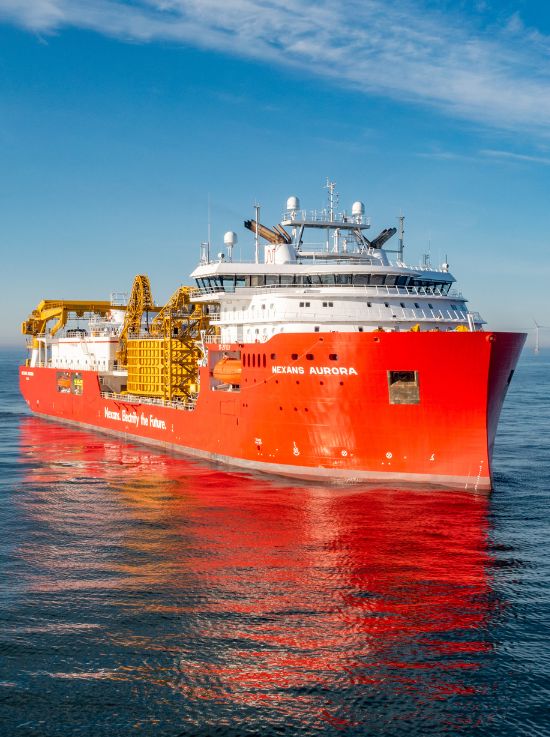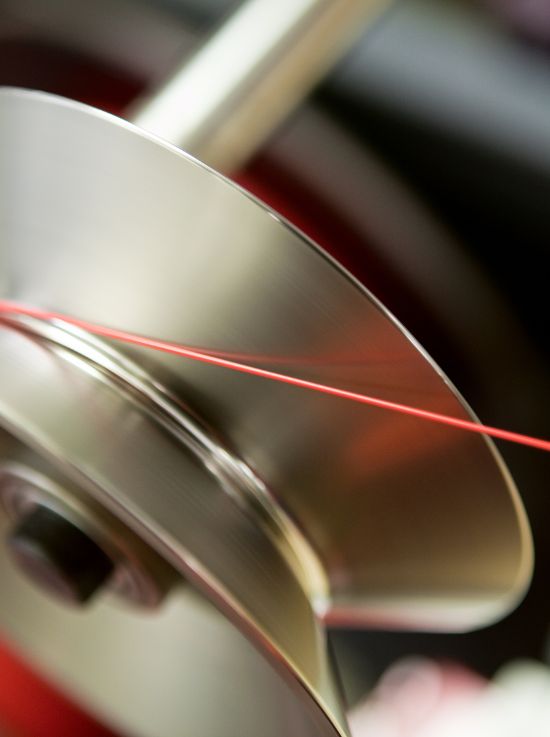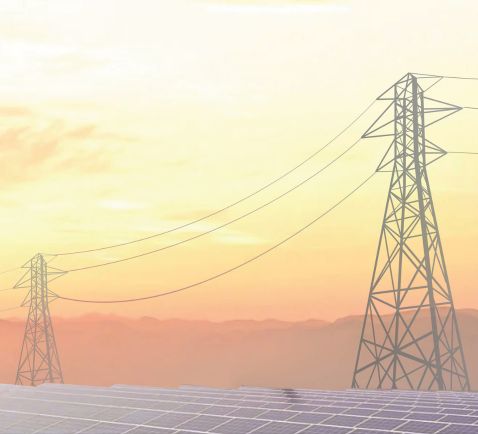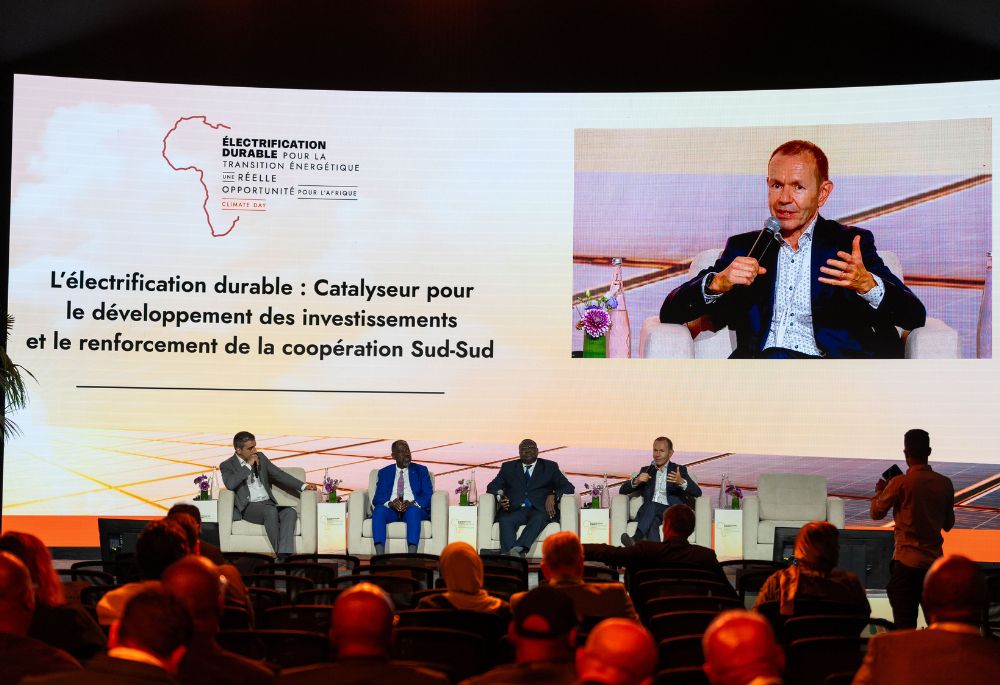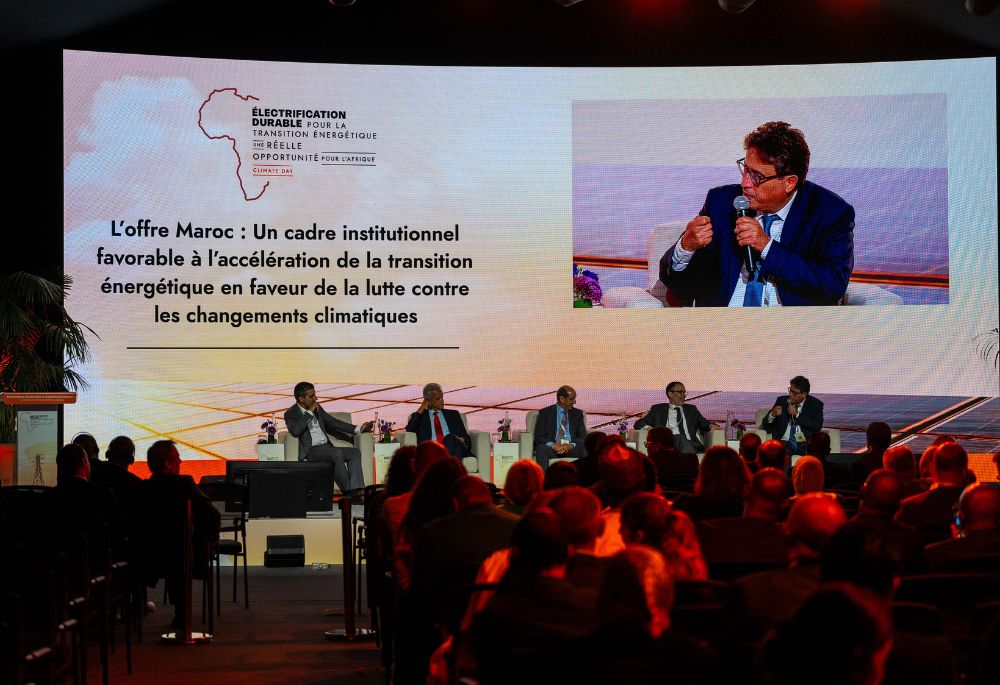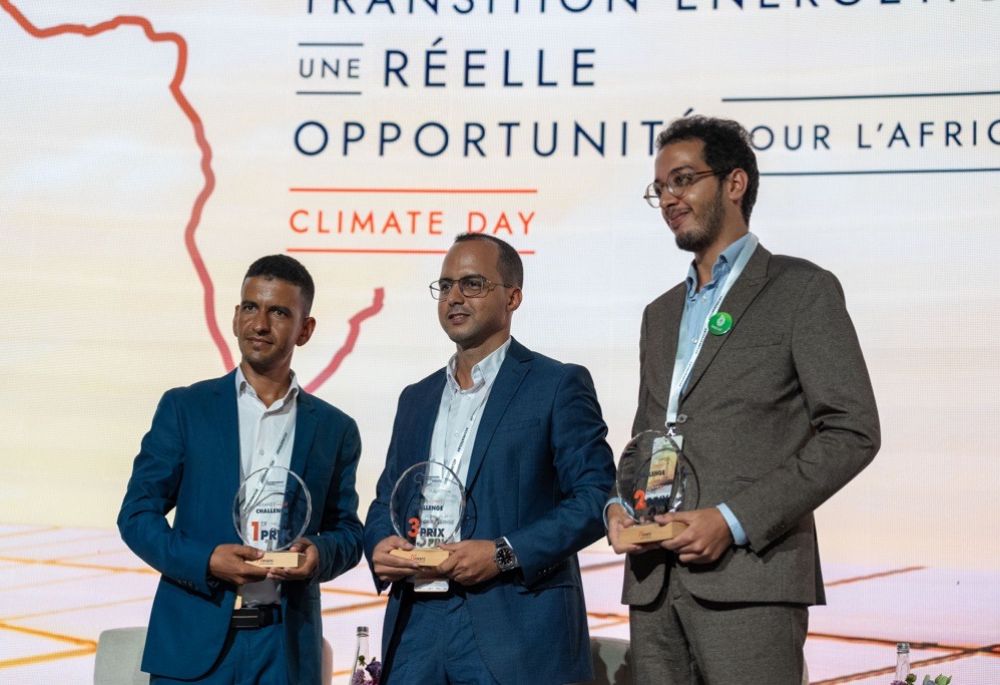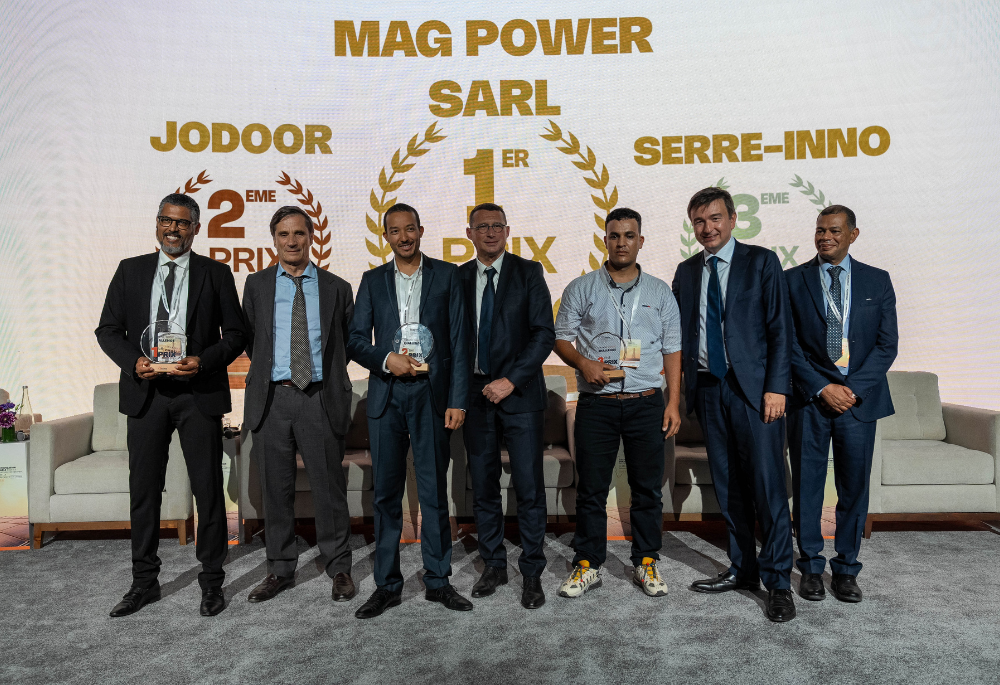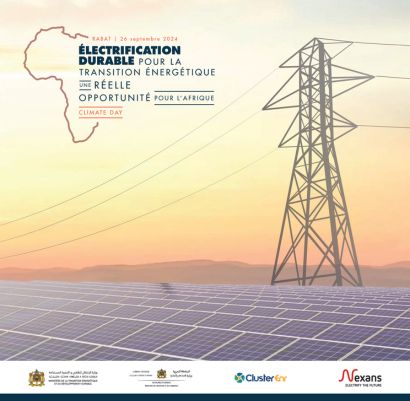- Nexans is stepping up its recycling strategy to support the energy transition and address the growing copper shortage.
- This necessary transformation is creating an opportunity for Nexans to set itself apart in the sector by leveraging its unique capabilities and agility.
- The company is launching its turnkey CableLoop service: collecting installation cable off-cuts and transporting them to the recycling centre, and then transforming the waste into recycled raw materials.
- A pioneer in electrification, the Group aims to use a minimum of 30% recycled copper in the manufacturing of its cables by 2030.
At a time when demand for electricity is set to increase by 35% by 2050, and the world is heading for a risk of shortages of raw materials – including copper, Nexans is strengthening its key role as a player in the circular economy to speed up the energy and climate transition.
By actively investing in the recycling of non-ferrous metals, Nexans is promoting the creation of a sustainable cycle geared towards decarbonized energy: extended life cycles, reuse and recycling will contribute to a circular economy, reducing the use of virgin resources and lowering the carbon footprint created by the electrification of our activities.
Nexans already recycles over 40,000 metric tons of its own production waste every year. In Europe, this cable sorting and recovery process is partly carried out through the RecyCâbles joint venture created with Suez in Noyelles-Godault (northwestern France). As well as guaranteeing product traceability, local processing avoids the need to export large quantities of waste from France.
End-to-end recovery of cable for clients and partners
With 60 years’ experience in recycling cable waste, Nexans is stepping up its circular economy strategy and is launching CableLoop, a unique recycling and recovery service for cable offcuts.
Nexans buys used cables – end of construction site electrical wires or obsolete industrial cables, and transforms them into valuable, infinitely reusable resources for its partners, customers, suppliers and the cable industry.
Two versions of the service are available:
- CABLELOOP Enterprises: the service for companies via on-site collection
- CABLELOOP Professionals: a new service offered by specialized distributors, for professional customers and electricians who can return their used cables to their branch.
With these new recycling loops, Nexans aims to collect more than 800 metric tons of used cables by 2025 and to expand this circular model by developing waste collection and recovery from the industrial ecosystem and from its electrical equipment installation and distribution partners in France and Europe (Germany, Belgium, Spain and Italy. Other European countries on request). Nexans will offer tailor-made logistics solutions and simplified, autonomous waste management on a 24-hour web platform together with traceability of the entire chain of operations.
Today’s waste is tomorrow’s growth
Nexans has been aware of the looming copper shortage for many years now, and has been warning of the consequences. Our strategy incorporates circularity, an essential response to resource scarcity. Electrifying the future expresses Nexans’ conviction not only in terms of innovation but also, and above all, in creating a responsible and sustainable ecosystem for our partners, customers and employees.
Managing Director, Nexans France
Since 2020 we have been working in partnership with Nexans to take back our cable offcuts from construction sites and branches, reflecting our commitment to promoting the circular economy in response to growing customer demand. The recycling service provided by Nexans allows us to add value to our waste by giving it a second life.
Procurements Officer, Equans France
We have set up a partnership with Nexans to take back cable offcuts from our warehouse, reflecting our strategy to promote the circular economy, and to meet the expectations of our installer customers.
CEO, Rexel France
The scrap cable recovery service offered with Nexans enables us to enrich the range of services provided by our branch network, to recycle our waste and help strengthen our employees’ commitment. This approach is virtuous on all levels: environmental, economic and social.
Sales Director, Sonepar France
Partnerships to promote the circular economy
Nexans is also a founding member of Valobat, an eco-organization made up of nearly 50 leading Building Products and Materials (BPM) manufacturing companies, committed to the management of construction sector waste and now in the circular economy. Nexans also works with suppliers committed to producing, among other things, low-carbon PE/PVC and aluminum made from recycled raw materials or using decarbonized energy.
All our press releases
Read all press releasesThe 4th edition of Climate Day, held yesterday at the historic Chellah site in Rabat, concluded successfully. This large-scale event marked a crucial milestone in the global fight against climate change. Over 450 participants from both public and private sectors, along with key figures from national and international organizations, were joined by an African delegation representing the energy sector to discuss pressing environmental challenges and promote initiatives for a sustainable future.
The event, inaugurated by Mr. Christopher Guerin, CEO of Nexans, featured speeches from Ms. Leila Benali, Minister of Energy Transition and Sustainable Development, Mr. Ryad Mezzour, Minister of Industry and Trade, as well as Mr. Ibrahim Matola, Minister of Energy of Malawi. Three panel discussions allowed speakers to debate the challenges of sustainable electrification, Morocco’s opportunities in energy transition, and the critical role of innovation in developing a sustainable ecosystem.
Watch the replay and get more details about the event
Nexans and the Fondation Nexans: A sustainable energy contribution
During Climate Day, Nexans Morocco and the Fondation Nexans contributed to the electrification of the “Shems’y” village, a refuge for orphans of the earthquake that struck the El Haouz region on September 8, 2023. Led by the Moroccan Association for the Assistance of Children in Precarious Situations (AMESIP), the project aims to accommodate 150 orphans, ranging from infants to 18 years old. The village is equipped with educational and cultural infrastructures, along with social and psychological support services, creating for these children an environment that fosters rehabilitation and recovery in the aftermath of the tragedy.
In the presence of Minister Dr. Leila Benali, Minister Mr. Ryad Mezzour, and Ms. Touraya Jaidi Bouabid, President of AMESIP, Nexans symbolically launched the village’s electrification. The Fondation Nexans funded the installation of photovoltaic panels, while Nexans Morocco provided the necessary cables and electrical equipment, ensuring a sustainable energy supply for this model village.
Nexans Climate Challenge: Rewarding environmental innovation
Climate Day also featured an awards ceremony honoring the six winners of the Nexans Climate Challenge, a competition aimed at recognizing the most innovative projects in environmental sustainability. The winners, selected for the impact of their forward-thinking ideas in reducing carbon emissions and promoting energy efficiency, each received a prize to support the implementation of their initiatives.
This 4th edition of Climate Day truly fulfilled its promise: facilitating high-level debates while continuing to inspire the development of concrete projects in support of the energy transition.
Nexans reaffirms its commitment to sustainable development by announcing the next edition of the Climate Day in Toronto, Canada.
All our press releases
Read all- The 4th edition of the Group’s annual Climate Day will focus on the theme: “Sustainable Electrification for the Energy Transition: A Major Opportunity for Africa.”
- This event will bring together key stakeholders from the energy sector, including institutions and economic players, with significant participation from African countries.
- A unique opportunity to engage in high-level discussions and to showcase concrete solutions for climate challenges in the region.
Nexans, a leader in the design and manufacture of cable systems and services, is organizing the 4th edition of its “Climate Day” in Morocco, in partnership with the Ministry of Industry and Trade, the Ministry of Energy Transition and Sustainable Development of Morocco, and the Cluster ENR. Initially scheduled for September 2023, the event was postponed due to the tragic earthquake in Morocco and will now take place in Rabat on September 26, 2024. This annual gathering continues the tradition of previous editions held in New York, Paris, and Stockholm.
This summit will bring together key players from the energy sector and ecosystem experts to raise awareness of climate challenges, share experiences, and propose concrete solutions for sustainable electrification. High-profile institutional figures will also be invited to speak.
Under the theme “Sustainable Electrification for the Energy Transition: A Real Opportunity for Africa”, this edition aims to strengthen the debate on climate issues in Africa. It will strive to place sustainable development at the heart of the continent’s economic and social interests. By fostering investment opportunities in renewable energies, the event seeks to bring forth concrete solutions to support the energy transition. Nexans’ Climate Day aspires to be a dynamic summit where ideas and initiatives converge for a significant impact on Africa’s energy future.
We are honoured to host the Climate Day in Morocco, a country that, under the visionary leadership of His Majesty King Mohammed VI, stands out for its remarkable efforts in accelerating the energy transition and promoting sustainable development. Morocco is an inspiring example for Africa and the world, demonstrating that economic growth can go hand in hand with the protection of our planet.

General Manager, Nexans North & West Africa
Morocco perfectly embodies the values of energy transition and sustainable development that we advocate, which is why we chose it as the host country of the 4th edition of our Climate Day. In a world facing ongoing crises and resource scarcity, companies have a crucial guiding role. We are therefore enthusiastic about bringing together decision-makers, experts, and renowned entrepreneurs at this event to contribute to accelerating the implementation of concrete solutions in Africa and beyond.

CEO, Nexans
The event will also be an opportunity to reward the winners of the Nexans Climate Challenge, a competition designed to encourage climate innovation by recognizing the most promising projects in this field.
All our press releases
Read all our press releases- Nexans received a prestigious ‘A’ score from CDP, reflecting its steadfast commitment to climate action and environmental transparency.
- Nexans sees positive shifts in EcoVadis and maintains its ‘A’ rating with MSCI, showcasing the company’s dedication to continuous improvement.
Nexans, a leader in the design and manufacturing of cable systems and services, has been recognized for leadership in corporate sustainability by the global environmental non-profit extra-financial agency CDP. Achieving an ‘A’ score and maintaining a position on the prestigious ‘A List’ for addressing climate change, Nexans reaffirms its dedication to environmental responsibility.
This recognition marks a significant milestone in Nexans’ journey towards sustainable electrification. The company’s unwavering commitment to climate action and environmental transparency. Noteworthy progress has been made, with this year’s achievement showcasing a commendable advancement from the ‘A-‘ rating in 2022 and 2021. Building on the initial ‘A’ rating in 2020, Nexans demonstrates a consistent commitment to climate action and environmental transparency.
Nexans’ consistent engagement to enhancing its methodology and turning commitment into action has played a crucial role in its success. The progression from ‘A-‘ to ‘A’ underscores Nexans’ proactive approach in comprehending and tackling the challenges presented by climate change, showcasing ongoing improvements.
This recognition serves as a powerful catalyst, motivating our company to intensify its endeavors and initiatives to meet the challenges of the sustainable electrification in the years ahead. I want to extend my gratitude to our dedicated team for their relentless efforts and reaffirm our commitment to driving positive change in the realms of climate action and environmental responsibility.

CEO, Nexans
In parallel, Nexans has made substantial advancements in its EcoVadis rating, increasing its previous score by 2 points, to reach 80/100. The enhancement observed reflects Nexans’ dedication to consistently improving its sustainable development practices. By upholding its “A” rating on the MSCI front, Nexans reasserts its steadfast commitment to achieving excellence in ESG topics.
While celebrating the achievements of 2023, Nexans remains focused on continuous improvement and to maintain and elevate its position on the global stage.
Press releases
Read all- Nexans production facilities in Montreal (Canada) and Lens (France) have been awarded the Copper Mark in recognition of responsible and sustainable copper rod production practices.
- The Copper Mark works with partners to help increase the amount of responsibly produced and sourced copper around the world.
- This recognition highlights Nexans’ overall commitment to the United Nations Sustainable Development Goals as well as the Group’s initiatives to be on the forefront regarding crucial issues such as copper responsible production.
Nexans, a leader in the design and manufacturing of cable systems and services, announced today that its Montreal (Canada) and Lens (France) metallurgy facilities have been awarded The Copper Mark.
This recognition demonstrates Nexans’ contribution to sustainable development and provides a comprehensive social and environmental assurance program for copper rod production. Nexans is one of the first cable manufacturers and rod mill operators to receive this award in North America and Europe.
Nexans’ Montreal and Lens sites obtained the Copper Mark label following a site-level evaluation conducted by independent audit firms. Both sites have been assessed against the 32 internationally recognized sustainability criteria including environmental, social, and governance standards.
The Copper Mark is the only organization working diligently to ensure sustainable production of copper and whose focus on social and environmental responsibility mirror those of Nexans. Being awarded this label is key at a time when Corporate Social Responsibility is becoming a key component of the metals and mining Industry.
Global Portfolio Director Non-Ferrous Metals, Nexans
In the fight against climate change, solutions that support the world’s energy transition make a real difference. Copper rod responsible production is a key component to this goal. This is why we are thrilled to be awarded the Copper Mark, an organization that shares the same values as ours. We look forward to continuing our metallurgy initiatives in our facilities to create a more sustainable future. This achievement has been possible thanks the dedication of our 272 collaborators working in the Lens and Montreal sites.
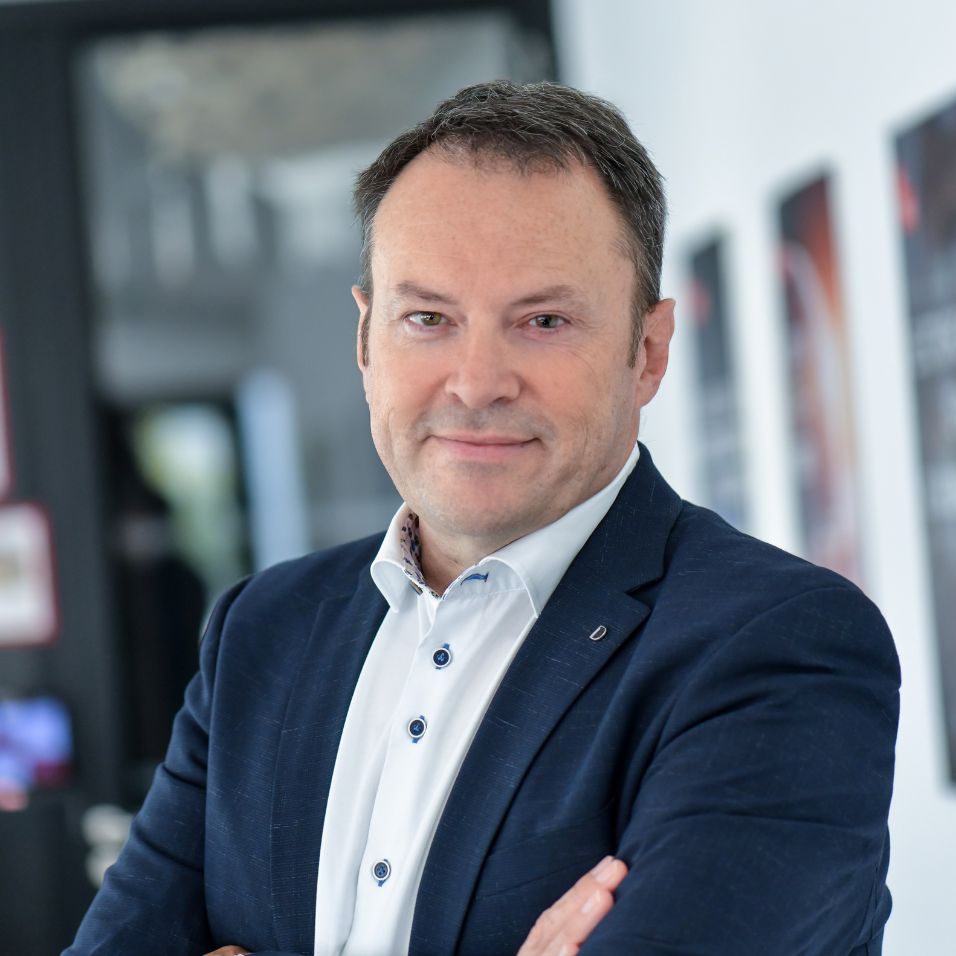
Chief Operating Officer Senior Executive VP, Nexans
Copper is a crucial part of the renewable energy transition as it is a primary component in electrification. As countries attempt to reach net-zero goals, copper demand is expected to soar in the future. Nexans’ responsibility is to make sure this increasing demand will be met according to responsible production practices. The Copper Mark recognition fully highlights Nexans’ position at the forefront of the sustainable electrification of the world. The Group has been a member of the UN Global Compact since 2008 and has been including the Sustainable Development Goals (SDGs) in its Corporate Social Responsibility (CSR) priorities since then.
Nexans will soon launch the same process in order to seek to obtain the Copper Mark label for its two other rod mill facilities in Peru and Chile.
Press releases
Read all- Nexans launches a new high-voltage cable range for aircraft that aligns with aerospace industry requirements to be carbon neutral by 2050.
- The new cable range has a higher power density, with partial discharge free operation over a wide range of voltages and altitudes.
- As part of the “Clean Aviation” partnership, Nexans will play a significant role in reaching the program’s energy efficiency and emissions goals, leading to a potential reduction of up 90% in emissions varying by the type of aircraft.
Nexans, a leader in the design and manufacturing of cable systems and services, has launched a new high-voltage cable range for aircraft. With an efficiency higher than the previous generation, this cable family is a decisive step to reaching the carbon neutral objective in the aerospace industry by 2050.
The need to consume less fuel is rapidly growing, driving the aerospace industry to change mobility technologies to alternative hybrid-electric aircraft. To support the next generation of aircraft, Nexans new high-voltage cables allow for a higher level of power without increasing the conductor’s diameter and weight.
Previewed at the Paris Air Show, Nexans new high-voltage cables for electrical and hybrid aircraft, and E-VTOL (Electrical Vertical Take-Off and Landing Vehicules) fit the requests from the Aerospace industry to reduce its carbon footprint, and the agenda of the French governement and the European commission to develop an innovative solution to integrate electrical and hybrid engines in aircraft.
Nexans high-voltage cables are 20 times more efficient than standard aircraft cables. They can be used from 600V to 6,000V (AC, DC, PWM) when the standard aircraft voltages are ranging from 28V DC to 115V or 230 AC. They have higher power density (power/mass), using a patented design with semi-conductive and high resistivity layers which are extruded as sandwich layers. This guarantees a partial discharge free operation over a wide range of voltages and altitudes. A partial discharge is an electrical discharge that partially bridges a gap between a high-voltage conductor and a low-voltage conductor. Partial discharge causes degradation and can lead to system breakdown.
This new step represents a major advancement for power transmission systems and the development of innovative and sustainable cable solutions in the aerospace sector. Nexans is applying its expertise to the development of multiple new-generation electrical technologies that are an integral part of sustainable flight. We are developing high-voltage cables to pave the way for the reduction of carbon emissions across the sector.
Aerospace Technical Director, Nexans
As part of the “Clean Aviation” partnership, Nexans will play a significant role in reaching the program’s energy efficiency and emissions goals, leading to a potential reduction of up 90% in emissions varying by the type of aircraft.
Nexans’ high voltage cables will be produced at its Draveil site in France, which employs 260 people.
Press releases
Read all our press releases- The first range of low-carbon power grid cables available on the French market guarantees a minimum 35% reduction in greenhouse gas emissions compared to standard cables.
- This offer is built on the guaranteed use of low-carbon aluminium and recycled plastic, as well as the use of renewable or decarbonised energies in manufacturing the cables. Products are 100% manufactured in France.
- Access to the CO2 data of these cables is guaranteed so that all the players in the chain can monitor and optimise their carbon emissions.
Nexans is launching a new range of low-carbon distribution grid cables, the first on the French market. By adopting a holistic approach all along the value chain and throughout the cable life cycle, the Group has succeeded in reducing the greenhouse gas emissions of its low- and medium-voltage cables from 35% to 50%, depending on the products.
This unprecedented offer represents a new stage, fully illustrating the Group’s commitment to decarbonised electrification. We are proud to introduce it in France: this illustrates the commitment of our teams to sustainable development, from our global Ampacity R&D center in Lyon to our factories, via the marketing and purchasing teams.
Executive Vice-President of the Power Distribution Cables & Accessories business, Nexans
The Group’s ambition: to reduce the cable industry’s carbon footprint…
The manufacturing of one kilometer of energy network cable currently generates a volume of CO2 representing two to three times the average annual emissions per inhabitant in France. These emissions come mainly from the aluminium conductor, which alone accounts for between 70% and 90% of the total footprint, followed by plastics, transport and the manufacturing process.
In order to reduce the carbon footprint of its products by more than one-third, Nexans acts-on:
- The guaranteed use of 100% low-carbon aluminium (produced during the electrolysis phase, using decarbonised electricity), in line with the objectives of the Aluminium Forward 2030 coalition of which the Group is part, and which is aimed at speeding up the sector’s decarbonisation;
- The use of up to 50% recycled plastic in the insulation and/or sheathing;
- Targeted actions on the manufacturing process and transport;
- Increased selectivity in the choice of suppliers based on their environmental performance;
- 100% French production at its plants in Jeumont and Bourg-en-Bresse.
A further advantage lies in the fact that Nexans provides all the environmental data for its products (PEP Ecopassport®) to enable power distribution operators, installers and distributors to manage their carbon emissions. On request, the Group also performs a carbon assessment per project or per customer.
… and over the entire life cycle of a cable
The environmental footprint of a cable is also measured beyond its manufacturing. Approximately 90% of the total emissions from grid cables are generated after they are put into service, due to the energy loss, known as the “Joule effect”, which accumulates over decades of use.
In line with its E3 ambition (Economy, Environment, Engagement), Nexans offers a range of solutions to reduce the carbon footprint of the cable over its entire life cycle:
- Engineering studies to determine the optimal cable type and cross-sections over the entire life cycle depending on the application;
- Innovative cable solutions, such as the EDRMAX® medium voltage cable, which can be buried as is, with no need for a sand bed, thanks to its reinforced sheath – thus reducing the CO2 emissions stemming from its installation by 10%;
- Digital solutions to increase our customers’ productivity: the ULTRACKER® range;
- Innovative technology via RecyCâbles (joint venture between Nexans and SUEZ) for the recycling copper and aluminum cables, promoting the circular economy.
Nexans’ new low-carbon power network cable offering illustrates Nexans’ capacity for innovation and its strong commitment to sustainable development, as the Group is recognized as a global leader in climate action by several extra-financial assessment bodies. This first offer is part of an ambitious Nexans carbon trajectory, validated by the Science-Based Targets Initiative (SBTi), aimed at reducing emissions by 4.2% per year between 2019 and 2030.
Press releases
Read all our press releases- Aluminum producer Trimet and Nexans have laid the groundwork for improving the eco-balance of power cables.
- In a joint breakthrough development project, the two companies have developed a material with recycled aluminum content for the production of aluminum rod used in electrical cables.
Trimet and Nexans have developed a new product able to meet the high technical requirements on the mechanical properties and conductivity of the alloy while reducing the product’s carbon footprint. Until now, power cables have been manufactured exclusively on the basis of primary aluminum.
Melting and recycling of aluminum scrap requires only a fraction of the energy needed to produce primary aluminum. However, recycled aluminum contains impurities that adversely affect the material’s specific properties. The collaborative project between Nexans and Trimet aimed to coordinate optimized raw material supply and innovative material development. For example, Nexans has refined the sorting of aluminum scrap at its production sites in Europe through RecyCâbles, a Nexans-Suez joint venture, while gearing its collection to recycling for electrical cables. Trimet has closed the material cycle with its recycling concept and used the scrap obtained to develop a high-quality alloy that meets the full range of quality requirements for mechanical and electrical performance.
Our project shows that recycling offers enormous potential to reduce CO2 emissions. I am proud that Nexans can now offer its customers a product that combines superior quality while ensuring a higher level of circular economy. Nexans thus pursues its strategy to constantly look for new sources of value for its customers.

Chief Operating Officer, Nexans
Recycling is an important component of sustainable aluminum production for us. The development of high-quality alloys with the smallest possible carbon footprint makes a significant contribution to this.
CEO of Trimet Aluminum SE and President, Trimet France SAS
Nexans plans to maximize the use of aluminum rod with recycled aluminum content in 2023. This enables the global company to meet its customers’ growing demand for products with a favorable eco-balance. For its part, Trimet is expanding its range of recycled products in the aluminum wire sector. In so doing, the materials specialist is building on its commitment to decarbonize production while making a further contribution to the energy transition.
Find all our press releases
Read allOn Wednesday December 7, 2022, Ryad Mezzour, Moroccan Minister of Industry and Trade, and Christopher Guérin, CEO of Nexans Group, inaugurated the Nexans photovoltaic power facility in a ceremony held on the group’s site in Mohammedia, in Morocco.
The facility is installed on the roof of the Mohammedia plant, comprising 4,640 photovoltaic panels – for an installed capacity of 2.5 MWp – that cover a total surface area of 12,166 square metres. It will produce more than 3,927 MWh of electricity annually, a capacity that will guarantee a substantial reduction of more than 2,850 tonnes per year in CO2 emissions, and cover 19% of the plant’s energy needs.
The choice of Nexans Group is in line with Morocco’s objectives to develop a clean, decarbonised and environmentally responsible industry.
Minister of Industry and Trade, Morocco
“Under the leadership of His Majesty King Mohammed VI, may God assist him, our country has been a pioneer in the development and use of renewable energies which today present an alternative. It is thanks to this alternative that manufacturers can both reinforce their competitiveness, reduce their energy bill and contribute to mitigating the impact of climate change,” said Mr. Mezzour. He went on to specify that “the energy transition is now an industrial imperative that must be approached as an opportunity to be seized.”
For Christopher Guérin, this inauguration lies at the heart of Nexans’ agenda, which has made the climate emergency a priority, with a firm commitment to reduce its greenhouse gas emissions by 4.2% per year by 2030.
The Mohammedia facility is central to one of our Group’s best performing business units. This success attests to 75 years of strong ties between Nexans and Morocco, and paves the way for a common roadmap in terms of sustainable electrification, in particular through ambitious investment projects.

CEO, Nexans
For her part, Selma Alami, Nexans Managing Director for North and West Africa, stressed the importance of the inauguration’s context. “Morocco is moving up a gear in the development of renewable energies in order to guarantee its energy security while positioning itself as one of the most attractive global destinations in terms of green industrialisation.”
Thanks to its historical legitimacy, and driven by the Kingdom’s industrial ambitions, Nexans aims to step up its ascension in the value chain while continuing to provide innovative solutions to its partners.

Managing Director, Nexans North & West Africa
Find all our press releases
Read allKey stakeholders discussed offshore wind farms and U.S. energy independence
- Nexans hosted its third annual Climate Day in New York City on September 21 as part of Climate Week NYC.
- Executives from the energy sector debated the future of offshore wind in the U.S. and how to build a supply chain that can support the energy transition.
- Actor and environmentalist Adrian Grenier opened the event with a fireside chat on ocean conservation.
Nexans hosted its third annual Climate Day in New York City this afternoon with executives from the energy space including Siemens Gamesa, the American Clean Power Association (ACP), Citizens for Responsible Energy Solutions (CRES), Equinor, the American Council on Renewable Energy (ACORE), Ørsted, Marmen, and the Business Network for Offshore Wind (BNOW).
In a world where energy has been at the center of the conversation, this event in which ideas could flow freely, was crucial to the development of actionable solutions to the energy crisis.
One key takeaway highlighted by Nexans CEO Christopher Guérin was that “The reserves for raw materials are not infinite. The consumption of copper in the world went from 9 million metric tons to 21 million metric tons in the last 25 years. With the world becoming more electrified than in the past and because of the addition of electric vehicles, in 10 to 15 years, the demand will increase to 35 million metric tons. The only way to support to support investments in sustainable energy is through the recycling of raw materials and to increase innovation.”
The event also featured a fireside chat about ocean conservation with actor and environmentalist Adrian Grenier and remarks from Congressman Andrew Garbarino (NY) and Senator Ed Markey (MA), as well as panels debating whether offshore wind can help solve the energy crisis and what the supply chain will look like in the United States for more sustainable sources of energy.
Some key takeaways from the day include:
- We can only achieve our goals if companies, policymakers, and governmental agencies work together with one objective: to make change and move toward a more sustainable future, today. These are challenges we face together, and we must culminate our individual efforts to ensure change while keeping costs low.
- Elected officials hope to localize the supply chain to meet their sustainability goals, create jobs and support the local economy while at the same time ensuring the security of the electrical grid. The Inflation Reduction Act empowers businesses to make decisions that are necessary to expand offshore wind operations in the United States.
- Actor, filmmaker, and environmentalist Adrian Grenier noted that, “There’s an artificial timeline that has been imposed. We need to be reliant and take responsibility to make these positive changes. Let’s put more resources, more minds, and more energy into what we can build without the constrains of fear and time.”
A full video of Nexans’ Climate Day with more insights from panelists is available to stream.
Replay
Find all our press releases
Read all
